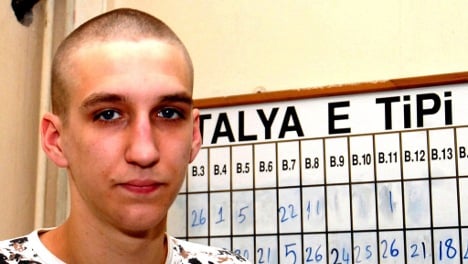The Antalya court ruled on Wednesday that Weiss, who spent eight months in a Turkish prison after his arrest, was guilty of “sexually abusing a child.” But the sentence of two years, two months, and 20 days was suspended with the addition of 2.5 years of probation.
“This verdict says nothing about guilt or innocence,” Weiss’ mother told daily Bild on Thursday. “Naturally we don’t recognise it. It is false and unjust. Marco doesn’t want to let it stand like this.”
His father told the paper that the family was “utterly disappointed.”
In April 2007, the mother of a 13-year-old British girl called Charlotte pressed charges, alleging that Weiss had sexual relations with her daughter while both were on vacation with their parents at Antalya resort.
Weiss admitted to sexual contact with the girl, but denied having intercourse and said she had told him she was 15-years-old.
The case created a storm of media coverage in Germany and caused diplomatic tensions with Turkey when Berlin demanded Weiss’ release. He was allowed to return to Germany in December of 2007 and now lives in Uelzen in Lower Saxony with his family.
Despite the fact that he will not face more time behind bars, his family and lawyer said they were disappointed in the verdict and plan to appeal after they clarify whether it will have legal repercussions, such as probation, in Germany.
The prosecution is also reportedly planning to appeal the ruling.




 Please whitelist us to continue reading.
Please whitelist us to continue reading.
Member comments